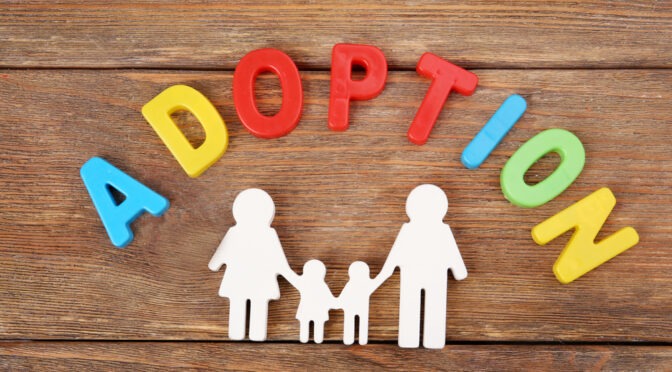A Global Perspective on International Divorce: A Comprehensive Survey
Introduction
When facing international divorce, it’s crucial to understand the various divorce laws around the world. The rules and regulations differ significantly across countries, often posing intricate challenges. This article offers an in-depth look at the diverse legal landscapes, highlighting key differences, and providing real-world examples.
Keyphrase: International Divorce
Understanding Divorce Laws in the United States
In the United States, each state follows its unique legal system, causing the divorce laws to fluctuate across the country. Taking Massachusetts as an example, where Reeves Lavallee PC operates, “no-fault” laws primarily govern divorce. In a “no-fault” divorce, couples can dissolve their marriage without proving specific grounds such as adultery, abandonment, or abuse. This type of divorce aims to streamline the process, with primary concerns revolving around property division, child custody, alimony, and child support.
International Divorce in Europe: Contrasting UK and Italy
Europe showcases a considerable divergence in divorce laws among its member countries. Here, we spotlight the United Kingdom and Italy as two contrasting examples.
Navigating Divorce in the United Kingdom
In the UK, couples can petition for divorce based on either “fault” or “no-fault” grounds. The Divorce, Dissolution, and Separation Act introduced in 2020 allows couples to file a “no-fault” divorce, ending their marriage without blaming each other. Provided the couple has been married for over 12 months, they can proceed with a no-fault divorce, even if both parties don’t mutually agree. This approach intends to minimize conflict and encourages a more constructive route to divorce.
Understanding Divorce in Italy
In Italy, divorce became legal only in 1970 and was initially a complicated process. Over time, significant reforms have simplified the procedure, offering both “no-fault” and “fault-based” divorces. In a “no-fault” divorce, couples can split after a legal separation period. However, for a “fault-based” divorce, couples need to prove specific grounds like adultery or abandonment. These diverse options enable couples to choose an approach that best fits their circumstances.
International Divorce in Asia: Factoring in Culture and Law in India and Japan
In Asia, cultural and religious aspects greatly shape the divorce laws. To illustrate this, let’s discuss the divorce regulations in India and Japan.
Exploring Divorce in India
In India, divorce laws are based on the religious affiliation of the couple. For instance, Hindu couples can end their marriage under the Hindu Marriage Act of 1955, citing reasons such as cruelty, adultery, or desertion. Conversely, Muslim couples follow the Muslim Personal Law, offering various grounds for divorce like mutual consent, cruelty, or adultery. This diverse legal framework highlights India’s cultural diversity and its respect for religious practices.
Decoding Divorce in Japan
Japan offers a distinctive divorce approach termed “kyogi rikon,” which is a divorce by mutual agreement. Under this arrangement, couples need to mutually agree on the divorce and register this agreement with a local government office. The simplicity and effectiveness of this process contribute to Japan’s relatively high divorce rates, underlining the profound influence of cultural and legal factors on divorce practices.
Divorce in China: Balancing Tradition and Modernity
In China, the divorce process intertwines traditional values and modern legal principles. Here’s a glimpse into the Chinese approach to divorce.
Over the years, divorce laws in China have undergone significant transformations, reflecting societal changes. China introduced the Marriage Law in 1950, legalizing divorce. This law aimed to protect women’s rights and promote gender equality, marking a significant shift from traditional values that discouraged divorce.
Under the current law, couples can file for divorce based on mutual consent or dispute. In a mutual consent divorce, both parties agree on major issues like property division and child custody, and the process is generally straightforward. However, a disputed divorce, where parties cannot agree on these matters, often results in a court hearing.
Recently, China introduced a controversial “cooling-off” period for divorce. Under the Civil Code implemented in 2021, couples filing for divorce must undergo a 30-day period to reconsider their decision before the divorce is granted. This measure, aimed at decreasing the divorce rate, has been a subject of intense debate, highlighting the ongoing tension between tradition and modernity in China’s approach to divorce.
Understanding these aspects is important when considering divorce proceedings in China, as it’s a unique blend of traditional values, societal change, and evolving legal landscape.
Conclusion
International divorce presents an intricate legal maze with stark variations across countries. A solid understanding of these differences is essential for individuals navigating the international divorce process. In this exploration, we’ve offered a snapshot of the varied approaches adopted by the United States, Europe, and Asia. From the emphasis on “no-fault” divorces in Massachusetts to the preference for amicable divorces in the United Kingdom and the strong influence of cultural and religious factors in India and Japan, understanding the local laws and customs of international divorce is critical.
How We Can Help
At Reeves Lavallee PC, we understand that every divorce case is unique, especially those that cross international borders. With our comprehensive knowledge of divorce laws in Massachusetts and internationally, we are perfectly equipped to guide you through the complex landscape of international divorce.
Whether you’re at the start of your journey, in the midst of proceedings, or seeking advice post-divorce, we’re here to help. We believe in providing personalized support tailored to your circumstances, ensuring you feel informed and confident every step of the way.
#InternationalDivorce, #DivorceLaws, #Massachusetts, #UnitedStates, #Europe, #UnitedKingdom, #Italy, #Asia, #India, #Japan, #China, #LegalAdvice, #ReevesLavalleePC


